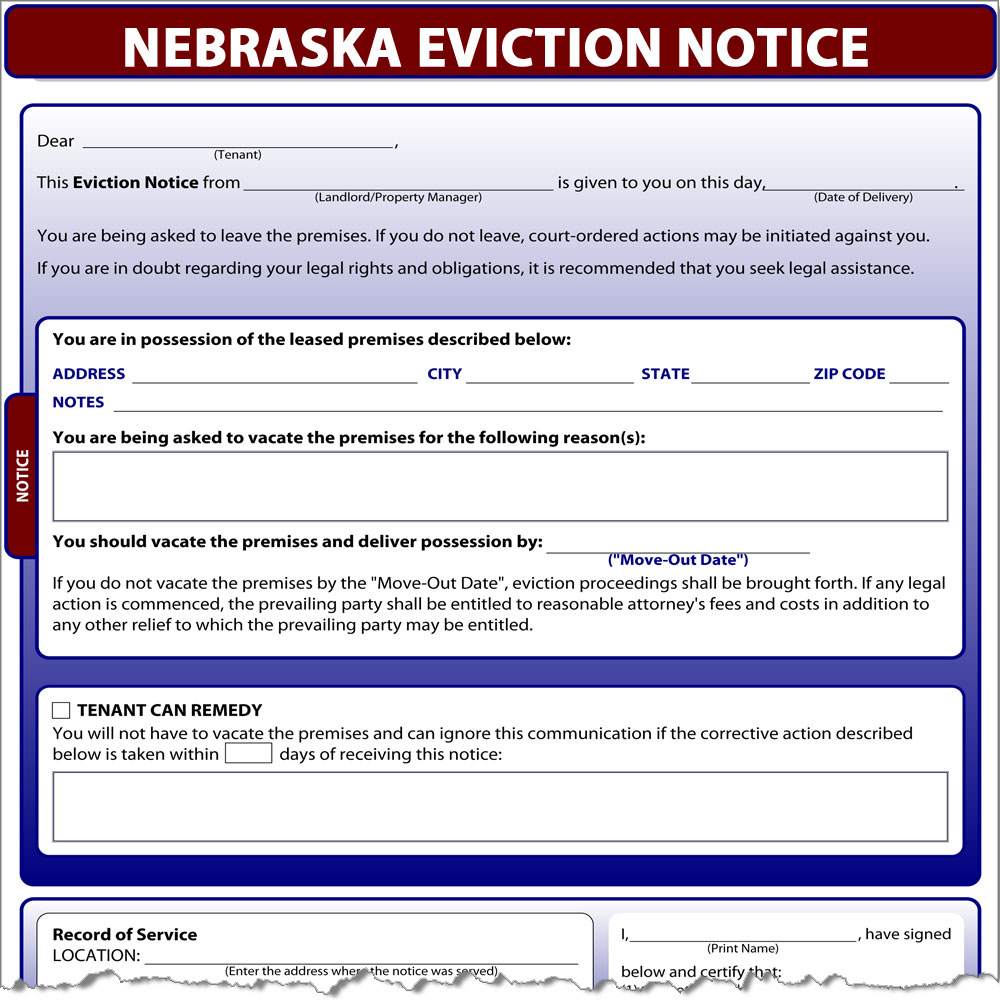Being evicted from your rental property is a tense and complicated experience, especially if you are not familiar with the laws surrounding eviction in your state. As a tenant in Nebraska, it is essential to comprehend your rights and obligations when dealing having an eviction. In this guide, we will walk you through the ins and outs of nebraska eviction process and offer you some essential tips on how to handle an eviction notice.

Reasons for eviction in Nebraska
In Nebraska, a landlord can terminate a lease and initiate eviction proceedings for several reasons, including non-payment of rent, violation of the terms of the lease, and breach of statutory duties. Non-payment of rent is the most typical basis for eviction, and landlords must follow specific procedures before they can file a legal complaint. Additionally, Nebraska law prohibits landlords from evicting tenants in retaliation for exercising their rights, such as for example reporting code violations or joining a tenant organization.
The eviction process in Nebraska
In case a landlord wants to evict a tenant for non-payment of rent, they should first provide a written notice to pay for or quit. If the tenant fails to pay for the rent or move out within the specified period, the landlord can file a legal complaint in court. The court will then issue a summons and complaint, and the tenant may have a specific amount of days to respond. If the tenant fails to appear in court or does not need a defense, the court will issue an order of possession which allows the landlord to get back the property.
Tenant rights through the eviction process
Tenants have several rights during the eviction process, including the right to get proper notice, the right to defend against eviction, and the best to seek legal representation. Additionally, tenants can't be evicted with no court order, no matter the cause of the eviction. If your landlord initiates an illegal eviction, tenants can file an issue with the Nebraska Attorney General's Office.
Handling an eviction notice
Receiving an eviction notice can be quite a scary and overwhelming experience, but you will find things you certainly can do to safeguard your rights. If you receive a notice to cover or quit, ensure that you keep a copy of the notice and take steps to cover the rent if possible. If you obtain a summons and complaint, consult with a lawyer or legal aid organization to determine your rights and options. Additionally, be sure to keep a record of most communication with your landlord and attend all court hearings.
Resources for tenants facing eviction
If you are facing eviction in Nebraska, there are many resources available to help you. Legal aid organizations such as Nebraska Legal Aid and the Volunteer Lawyers Project offer low-cost or free legal services to low-income tenants. Additionally, the Nebraska Attorney General's Office provides informative data on tenant rights and regulations related to eviction.

Conclusion:
Understanding Nebraska eviction laws is needed for tenants who're renting a property. By knowing your rights and obligations, you can be better prepared to deal with an eviction notice and protect yourself against illegal eviction practices. Remember, if you're facing eviction, seek legal assistance and keep detailed records of most communication along with your landlord. With the best knowledge and resources, you are able to navigate the eviction process and protect your rights as a tenant.
